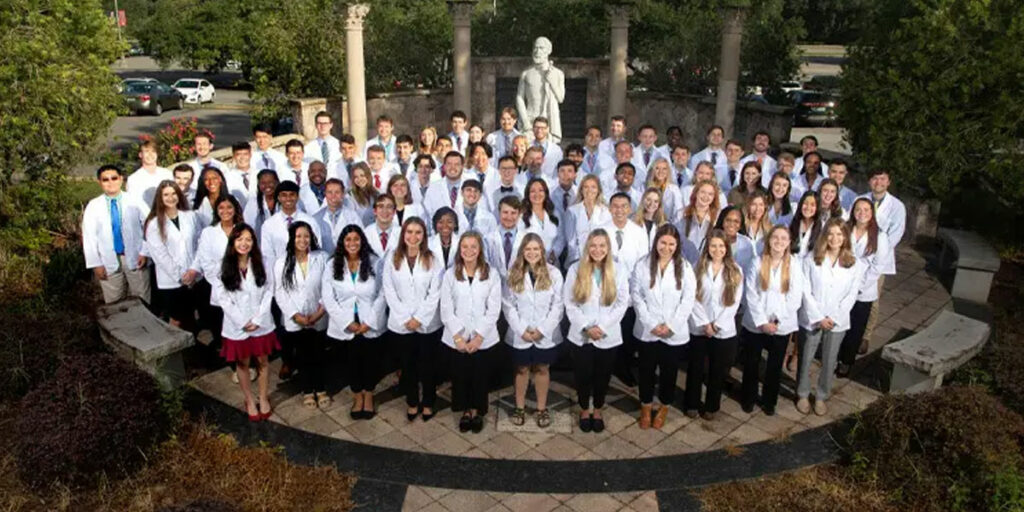Alabama’s position as a health care hub and its firm footing in advanced manufacturing are among the reasons officials believe medical devices and medical technology are potential growth areas.
Southern Research hosted a MedTech Symposium in Birmingham on Feb. 28 to spur the discussion for growing the industry in the state.
Alabama Commerce Secretary Greg Canfield was a speaker at the symposium and said it is a logical area for growth in Birmingham and other parts of the state.
“This initiative is really important because it gives us the opportunity to link advanced manufacturing expertise in Alabama to the health care expertise that we have in our state.”
The symposium was the work of Stacey Kelpke, director of Southern Research’s Medical Technology program. She hopes it becomes a recurring event and fits into an overall strategy that includes marrying startups with funding sources and linking research universities and health care companies with manufacturing and engineering experts.
“I think it could be a great boom for Alabama,” Kelpke said. “With our rich manufacturing history and the current medical health care here, it just seems like a perfect fit.”
She said like other facets of healthcare, medtech seeks ”to be able to impact patients, which is really why we are all in this in the first place.”
Medtech fits into the state’s economic development plan, Accelerate Alabama, which has growing the innovation economy and advanced manufacturing as two of its core principles.
“Part of Accelerate Alabama is focused on the broad sector of life sciences,” Canfield said. “Medtech and medical devices I would consider a subsector within that broad sector. It offers a lot of opportunity.”
According to the Advanced Medical Technology Association (AdvaMed), the medtech industry in Alabama accounts for 5,900 total jobs, with 2,300 being direct jobs in the industry. Those jobs have an average salary of $38,016 and the industry contributes $850.3 million to the state economy.
As impressive as those numbers may sound, there is room for growth. In South Carolina, there are 10,500 total jobs in the industry and a total economic impact on the state of $2.6 billion, according to AdvaMed. The numbers are even larger in Georgia (22,500 total jobs and a $3.1 billion economic impact on the state), North Carolina (24,500 and $4.6 billion) and Tennessee (25,600 and $5.1 billion).
Nationally, medical technology is a $380 billion business employing 519,000 people directly and nearly 2 million in direct and indirect jobs, according to AdvaMed. The average medtech worker in the U.S. earns $84,000 per year in salary and benefits.
The Economic Development Partnership of Alabama said there more than 50 medical device and medical equipment companies operating throughout the state.
Orchid Orthopedic Solutions in Arab, Turner Medical in Athens and Baxter Inc. in Opelika are among the companies in the state. Birmingham has the largest concentration, with companies like BioHorizons, Evonik and Steris, which also has operations in Montgomery.
“The state of Alabama is working hard to create an environment that is conducive to economic prosperity for its citizens and businesses. Steris would not have made further investments in our Montgomery and Birmingham operations if we did not agree,” said Stephen Norton, a spokesperson for Steris.
Norton agreed Alabama has set conditions favorable for greater growth.
“Alabama’s overall business climate makes the state an attractive option for a diverse mix of businesses, including medical device manufacturing and repair-related services,” he said. “The workforce is motivated, educated and well-trained, so it is not a surprise to us that major manufacturers are attracted to the region.”
BIO Alabama is an organization of life science companies looking to expand all aspects of the industry in the state. Medtech’s potential is great, according to Blair King, economic developer with Alabama Power and chairman-elect of BIO Alabama.
“BIO Alabama shares Secretary Canfield’s belief that the medical device industry holds great potential for expansion in the state,” King said. “All of the ingredients exist in Alabama for medical technology businesses to grow organically or for companies outside the state to choose to locate here.”
Canfield said taking what Alabama has learned in growing the automotive and aerospace industries in the state and applying a similar approach can boost the life science sector. The growing segment of additive manufacturing, which incorporates technology like 3-D printing, can also play a role, he said.
“Additive manufacturing is going to be involved in all aspects of this as we move forward,” Canfield said. “Alabama is establishing itself in developing experience and expertise in additive manufacturing. We’ve also developed a lot of the companies that are providing the raw materials as well as the technology that help make additive manufacturing what it is today.”
Kelpke said there are issues to address such as regulatory reimbursement and access to venture capital that would go a long way in accelerating the industry’s expansion in Alabama. But, she said, the initial symposium helped foster those discussions and she’s optimistic about where it can go from there.
“Hopefully it’s the first of many,” she said of the symposium.
(Courtesy of Alabama NewsCenter)












